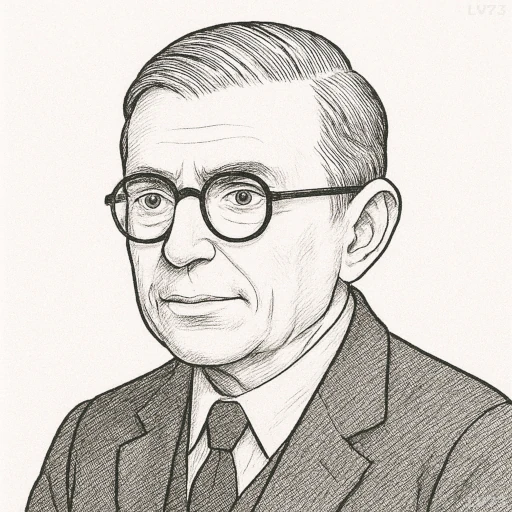“She believed in nothing; only her skepticism kept her from being an atheist.”

- June 21, 1905 – April 15, 1980
- Born in France
- Philosopher, novelist, playwright
table of contents
Quote
“She believed in nothing; only her skepticism kept her from being an atheist.”
Explanation
In this quote, Sartre describes a person who is trapped in a state of cynicism or doubt, where they lack belief in anything yet remain hesitant to fully embrace atheism. The phrase “she believed in nothing” suggests a profound disillusionment with conventional systems of belief, whether religious or ideological, while the second part, “only her skepticism kept her from being an atheist,” indicates that this individual is caught in a kind of intellectual or emotional paralysis. Her skepticism prevents her from committing fully to a stance—whether it’s faith or atheism—because she is distrustful of both, yet unable to adopt a firm position. This reflects Sartre’s broader theme that existential freedom often forces individuals to confront the absence of inherent meaning, leading to confusion and doubt.
The person Sartre describes is someone who cannot accept traditional beliefs but is also unable to embrace the void of atheism fully. Their skepticism acts as a defense mechanism against committing to any belief system, leaving them in a state of existential crisis or apathy. Sartre’s existential philosophy stresses the freedom and responsibility of creating one’s own meaning in life, and this quote can be interpreted as a critique of people who, paralyzed by doubt, avoid the difficult task of authentically choosing and defining their own values.
In modern times, this quote resonates with the doubts and disillusionments faced by many individuals in a world where traditional institutions (religion, politics, social norms) are increasingly questioned or rejected. Many people today find themselves in a state of existential uncertainty, unable to fully commit to any belief system, whether spiritual, political, or moral. Sartre’s insight encourages us to confront skepticism head-on, not as a reason to remain in a state of inaction or apathetic doubt, but as an opportunity to choose and create meaning for ourselves, rather than passively allowing doubt to control our sense of purpose.
Would you like to share your impressions or related stories about this quote in the comments section?




